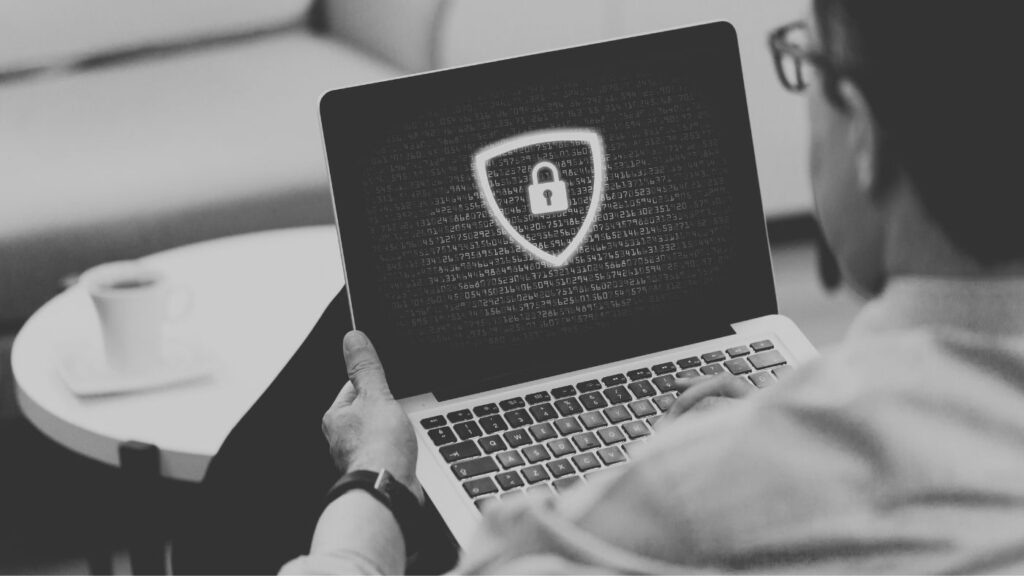Key Takeaways
- Scams come in various forms like investment, romance, and online scams, and it’s crucial to report them to the appropriate agencies such as Scamwatch, ASIC, or local authorities.
- Protecting yourself against scams involves staying informed, being cautious with personal information, and regular monitoring of your accounts for any unusual activity.
- In the case of identity theft, promptly report to relevant institutions, secure your credit files, and utilize government resources like the FTC, IC3, and IDCARE for assistance.
Recognizing and Reporting Scammers
A scam is an intentional ploy to mislead someone for financial or other gains, often involving trickery to steal money or personal details. Anyone can become a victim, highlighting the need for widespread awareness and vigilance. Some common scams to be aware of include:
- Investment scams that promise high returns with little risk
- Phishing scams that trick you into revealing personal information
- Lottery or sweepstakes scams that claim you’ve won a prize but require payment to collect it
- Tech support scams that pretend to be from a reputable company and ask for remote access to your computer
- Romance scams that involve building an emotional connection with the intention of defrauding you
Recognizing these tactics is your first line of defense against scammers. Stay informed and be cautious when dealing with unfamiliar or suspicious situations.
The reporting process varies depending on the type of scam. Here are some examples:
- Accountant fraud should be reported to your local police station.
- Scams conducted via email, online, or telephone can be reported to Scamwatch.
- If you wish to report anonymously, Crime Stoppers provides a solution, facilitating anonymous reporting to local state or territory police.
Knowing the correct reporting channel is key, leading us to the following discussion.
Signs of a Scam
Have you ever received an unexpected call or message from an unknown number? Unsolicited contact is often a significant warning sign of a potential scam attempt. Online scammers can pose as reputable entities, exploiting trust to obtain money or personal details from unsuspecting individuals.
Maintain skepticism towards unsolicited requests for personal information. Bear in mind that refusing or ignoring such requests is perfectly acceptable. The power to shield yourself from scams lies in your hands. With this knowledge in mind, we now move on to the process of reporting scammers.
How to Report a Scammer
The act of reporting a scammer is vital in halting their deceptive operations. In cases involving suspected fraud, such as accountant fraud or complex fraud, your initial contact point should be the local police station. Ensure the fraud report form is thoroughly filled out prior to submitting it.
For scams conducted via email, online, or telephone, including those involving interstate or overseas operations, report directly to Scamwatch. If you prefer to remain anonymous while reporting a scam, you can contact Crime Stoppers, which allows for anonymous reporting to local state or territory police by providing your contact details.

Types of Scams and How to Report Them
Scams manifest in various forms, ranging from text or SMS scams, online scams, to even in-person scams. While some scammers impersonate government agencies or recognized businesses, others specialize in online shopping scams or false billing. This might seem daunting, but fear not, we are committed to making it comprehensible for you.
The process of reporting scams typically varies according to their nature. For instance, any occurrence of telecommunication fraud should be reported to the concerned service provider. We will now explore in depth a few specific types of scams and their corresponding reporting process.
Investment Scams
Investment scams can take various forms, from those related to superannuation funds to cryptocurrencies. In Australia, these scams should be reported to the Australian Securities and Investments Commission (ASIC). ASIC handles scams related to financial products and services, including cryptocurrencies. For superannuation fraud, you should report to the Australian Prudential Regulatory Authority (APRA).
Next, we shift our focus to a distinct category of scams, which exploit emotions instead of financial aspirations.
Romance Scams
Romance scams occur when scammers exploit connections on dating websites and social media to manipulate victims into giving money. Scammers use fabricated narratives that appeal to targets’ emotions, often pretending to be in tragic circumstances, to secure financial aid.
In a single year, Australia reported losses exceeding $25 million due to romance scams. Victims can report these scams through their local police force or, in New South Wales, through the ACCC’s SCAMwatch ‘report a scam’ page. Next, we examine scams that primarily operate in the cyber domain.
Online Scams
Online scams, including remote access scams, involve fake invoices and malicious software, leveraging the internet to deceive people. If you encounter such scams, report them to the National Anti-Scam Centre’s Scamwatch. If the scam involves banking or credit card information, report it directly to your bank or financial institution and the Australian Cyber Security Centre (ACSC).
ACSC functions as a centralized reporting platform for scams aimed at businesses, organizations, and corporations. Once you’ve identified and reported a scam, what steps can you take to safeguard against potential scams in the future?

Protecting Yourself from Scammers
Scams are ever-evolving, with scammers leveraging cutting-edge technology and significant societal events to craft persuasive narratives. If you’ve been scammed once, it’s crucial to stay extra cautious to prevent falling prey to subsequent scams that may offer illusory aid to recuperate lost funds.
Shielding oneself from scammers entails safeguarding personal data and keeping a vigilant eye on accounts for any unusual activity. We will now examine these protective steps in more detail.
Secure Your Personal Information
Securing your personal information is a crucial step in protecting yourself from scams. Use robust passwords, employ biometric security options such as fingerprint detection, and enable multi-factor authentication for your online accounts.
For financial transactions, use official banking apps and avoid using public Wi-Fi for sensitive activities. Adjust your social media settings to limit public sharing of personal details and prevent scammers from collecting data for fraudulent purposes. If you suspect identity theft, contact your bank, change your account passphrases, and consider identity theft insurance.
Monitor Your Accounts
Monitoring your accounts is another key step in protecting yourself from scams. Here are some personal accounts you should regularly review to ensure your bank account details are secure:
- Bank account transactions
- Credit card statements
- Online shopping accounts
- Credit reports
- Superannuation balances
Look out for any unauthorized activities, especially those involving your credit card details. Banking apps may provide security notifications and options to review suspicious account activity. After reporting identity theft, it’s crucial to continue monitoring your credit reports for any fraudulent activities or unfamiliar accounts.
Next, we discuss the concept of identity theft and how to effectively manage it.

Dealing with Identity Theft
Identity theft involves stealing personal information or assuming someone’s identity, often for financial gain. Swift action is necessary to minimize damage, including reporting to financial institutions to close any accounts fraudulently opened in your name and placing a fraud alert on your credit reports.
You can take the following steps to protect yourself from identity theft:
- Freeze your credit files to prevent the opening of new accounts without your authorization.
- Thoroughly inspect your credit reports for any discrepancies.
- Communicate with any entities that have inquired about your credit history to halt additional fraudulent activity.
But what exactly is identity theft?
What is Identity Theft?
Identity theft occurs when a person’s personal information is stolen and used, or when someone assumes a pre-existing identity, with or without permission. This can lead to unauthorized financial transactions and a damaged credit score.
If you believe you’ve fallen prey to identity theft, what steps should you take to report identity theft?
Reporting Identity Theft
Reporting identity theft is crucial to minimize damage and prevent further harm. In the US, file a report with the Federal Trade Commission and your local police. In Australia, report the incident to the Australian Cyber Security Centre through ReportCyber and the police.
You can take the following steps to resolve personal or business complications arising from identity theft:
- Get a victim’s certificate to aid in the resolution process.
- If the incident involves your tax details or business identity, notify the Australian Taxation Office immediately.
- Investigate the crucial resources provided by government agencies to aid in the fight against scams and identity theft.

Government Agencies and Resources
Government agencies and resources provide invaluable support and guidance for individuals affected by scams and identity theft. Some of these resources include:
- The Federal Trade Commission (FTC), which operates the National Do Not Call Registry and provides scam alerts to consumers
- The Internet Crime Complaint Center (IC3), which focuses on internet crimes
- The National Consumer League (NCL), which runs Fraud.org, a site that disseminates information on fraud prevention
These organizations are dedicated to protecting consumers and providing resources to help prevent and address scams and identity theft.
Other agencies like the Financial Crimes Enforcement Network (FinCEN), the Consumer Financial Protection Bureau (CFPB), the Securities and Exchange Commission’s (SEC) Office of Investor Education and Advocacy, and the Commodity Futures Trading Commission (CFTC) all play crucial roles in combating fraud and protecting consumers. But let’s zoom in on a couple of key resources that investigate civil matters.
National Anti-Scam Centers
National Anti-Scam Centres, like the national anti scam centre Scamwatch, serve as platforms for individuals to report scams, contributing to disrupting scam operations. When you report scams, you not only safeguard yourself but also contribute to preventing others from becoming victims of these deceptions.
Other Government Resources
Other government resources provide specialized support for victims of scams and identity theft. These services offer expert advice and recovery steps. IDCARE, Australia’s national identity and cyber support service, offers access to Certified Counsellors who deliver personalized guidance.
The Australian Taxation Office, for instance, should be notified immediately if an incident of identity theft involves a person’s tax details or business identity. Such resources are designed to assist you in traversing the process and reclaiming control over your identity.
Summary
Scams and identity theft are serious threats in our digital age, but with awareness and the right resources, you can protect yourself. Remember, recognizing scams is the first step to prevention. Report any suspected fraud promptly and utilize the various government resources at your disposal. Stay vigilant, secure your personal information, and monitor your accounts regularly. Together, we can build a safer digital world.
Frequently Asked Questions
How do I report a scammer in Australia?
To report a scammer in Australia, you can contact your local state or territory police at 131 444 or visit their website. You can also report the scam to Scamwatch if it’s related to email, online, or telephone scams, or to the Australian Securities and Investments Commission if it’s a financial or investment scam. If you need immediate assistance, you can call the Australian Signals Directorate’s Australian Cyber Security Centre hotline at 1300 CYBER1 (1300 292 371).
Is it worth reporting a scammer?
Yes, it’s definitely worth reporting a scammer as it helps warn others about the scam and disrupts it when possible. Be sure to provide details of the scam, like screenshots or the actual text.
How do I report a scammer?
If you’ve been scammed, contact your bank right away and consider reporting the scam to Scamwatch. Also, seek support from IDCARE if needed. Remember, taking quick action is crucial in these situations.
What are common signs of a scam?
Be cautious of unsolicited contact, requests for personal information, and scammers impersonating well-known organizations – these are common signs of a scam. Always verify the legitimacy of the contact before sharing any personal information.
What steps can I take to protect my personal information?
You can protect your personal information by using robust passwords, biometric security, multi-factor authentication, and only conducting financial transactions through official banking apps.


